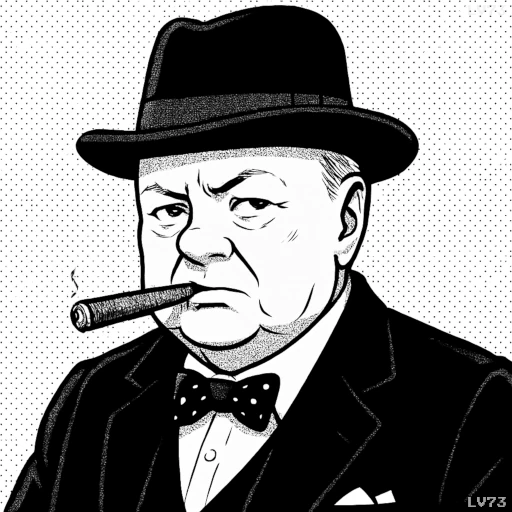“He has all of the virtues I dislike and none of the vices I admire.”

- November 30, 1874 – January 24, 1965
- British
- Politician, army officer, writer
table of contents
Quote
“He has all of the virtues I dislike and none of the vices I admire.”
Explanation
In this quote, Winston Churchill humorously expresses his disdain for someone who embodies a set of traits he finds unappealing while lacking the qualities that he personally values. The remark reflects Churchill’s sharp wit and his ability to deliver a cutting observation about a person’s character. By highlighting that the individual has all of the virtues he dislikes, Churchill is suggesting that they possess qualities such as excessive moral rigidity, self-righteousness, or perhaps an overly idealistic approach, which he found intolerable. At the same time, the fact that they have none of the vices he admires implies that the individual lacks any of the more humanizing flaws or redeeming qualities that might make them relatable or endearing.
This quote is often attributed to Churchill’s distinctive character and his interactions with political opponents or colleagues. He was known for his forthrightness and sharp tongue, especially in dealing with individuals whose principles or personalities conflicted with his own. His complex relationship with others was sometimes marked by admiration for their strengths, but also a recognition of their flaws, and in this case, he dismisses someone entirely because they do not even have those flaws he can relate to.
Today, this quote can serve as a reminder of the nuances in human character. It points out that people are often judged not only by their strengths but also by their weaknesses or vulnerabilities. It also reflects Churchill’s belief in authenticity—the idea that an individual who lacks both admirable flaws and redeeming virtues may seem empty or unworthy of respect. The remark underscores how personal preferences and biases shape our assessments of others, particularly in leadership or public life.
Would you like to share your impressions or related stories about this quote in the comments section?




